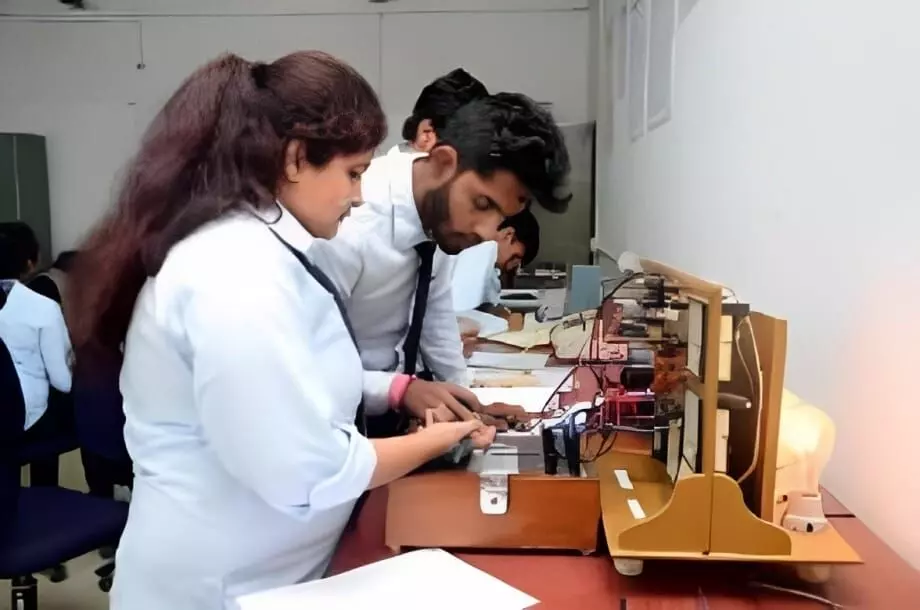Relevance of core engineering disciplines in the era of IT revolution
The connection between core engineering and IT promotes sustained growth and better future

Numerous facets of society have undergone significant change as a result of the IT industry’s fast expansion. IT has become an essential component of our everyday lives, influencing everything from how we interact and conduct business to how we access and exchange information. The importance of fundamental engineering disciplines like electrical, mechanical and civil engineering shouldn’t be disregarded, despite IT’s dominance in the field. These fields really play a significant part in facilitating and sustaining the IT revolution. Let’s examine how important fundamental engineering disciplines are now, in the age of the IT revolution.
Electrical engineering: Powering the digital age
The IT revolution is supported by electrical engineering, which ensures an uninterrupted supply of electricity to power the rapidly growing digital infrastructure. Electrical engineers create, build, and manage the intricate electrical systems that underpin the operation of IT services, from data centres to telecommunications networks. To ensure sustainability and dependability, they concentrate on electricity distribution, energy efficiency, and the incorporation of renewable energy sources.
Electrical engineers are also in charge of creating and improving the hardware parts that power the IT revolution. They create the basic electrical components that make up contemporary computing systems, including as integrated circuits, processors, memory chips, and other electronic components. Their knowledge is essential for developing technology, boosting processing capacity, and lowering energy usage, which eventually spurs innovation in the IT sector. Electrical engineers are playing very important roles towards sustainable future by contributing in development and implementation of renewable energy. They are also very crucial part of future automobile industry where most of the vehicles are EV.
Mechanical engineering: Innovation and infrastructure
Mechanical engineering is still crucial in building the physical infrastructure that underpins IT in revolutionising our digital environment. Data centres and server rooms are only two examples of the buildings that contain IT infrastructure, and mechanical engineers are essential to their design and construction. They are in charge of the thermal management, ventilation, and cooling systems required to keep servers and other IT equipment functioning at their best.
Mechanical engineers also help to create cutting-edge manufacturing techniques and automation technologies that support the fabrication of IT devices. They improve supply chain management, build effective robotics systems, and optimize production lines to enable the production of IT components more quickly and efficiently. These developments have a direct influence on the accessibility of IT goods by increasing their accessibility, cost, and dependability.
Civil engineering: Building digital connectivity
Civil engineering is essential to creating the physical infrastructure needed for the seamless transfer of digital information in the age of the IT revolution. Civil engineers maintain the connectivity that supports our digital life by building wireless communication towers, fiber optic cables, and telecommunication network foundations.
Additionally, civil engineers help create smart cities and intelligent transportation systems by using IT technologies to reduce energy use, boost traffic flow, and improve quality of life in general. Their skills in managing and planning infrastructure make it possible to integrate IT systems into urban settings, promoting the development of smart communities and sustainable cities.
Collaboration and convergence
While IT is revolutionising the way people work, live, and interact, it is crucial to understand that the contributions of core engineering disciplines are very important and integral to the success of this revolution. The boundaries between these disciplines are blurring, necessitating more and more of their cooperation and convergence. By combining IT knowledge with electrical, mechanical, and civil engineering ability, new opportunities are being opened up, and difficult problems are being addressed.
In conclusion, the importance of core engineering disciplines like electrical, mechanical, and civil engineering in the age of the IT revolution cannot be ignored. The digital transformation that is sweeping society is built on these disciplines. Civil engineers provide digital connectivity, mechanical engineers invent and construct infrastructure, and electrical engineers fuel the digital era. The connection between core engineering and IT promotes sustained growth, technical improvements, and a better future for everyone by embracing cooperation and convergence.
For admission apply Online at:
www.tint.edu.in
Call: 9674112076 or 9674112079



